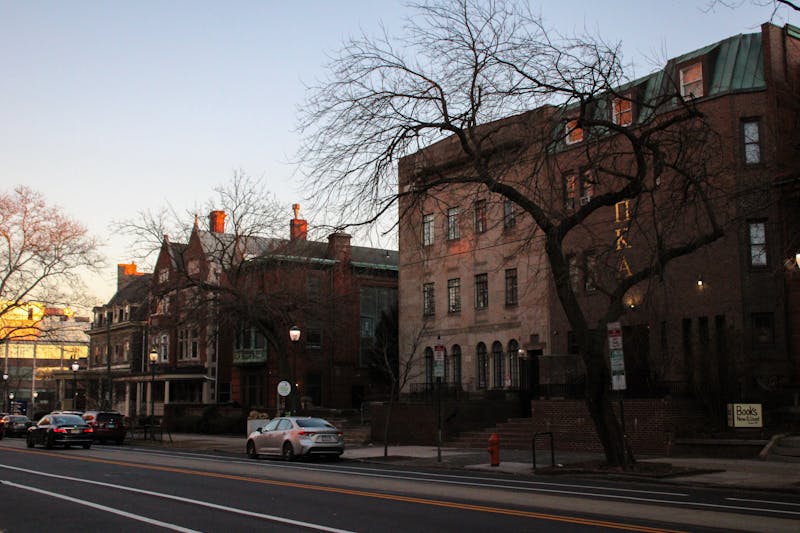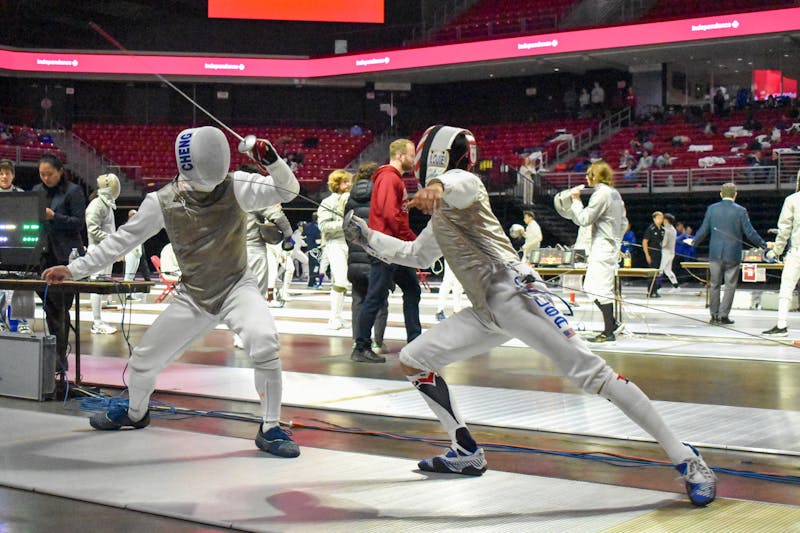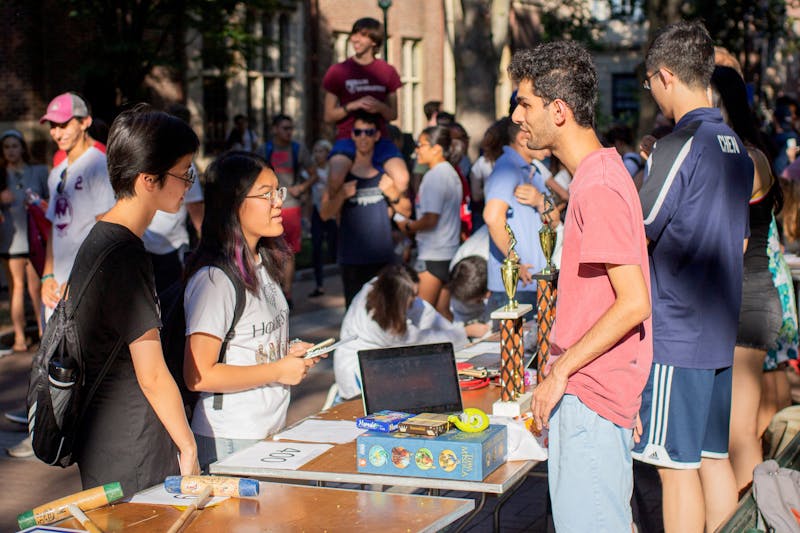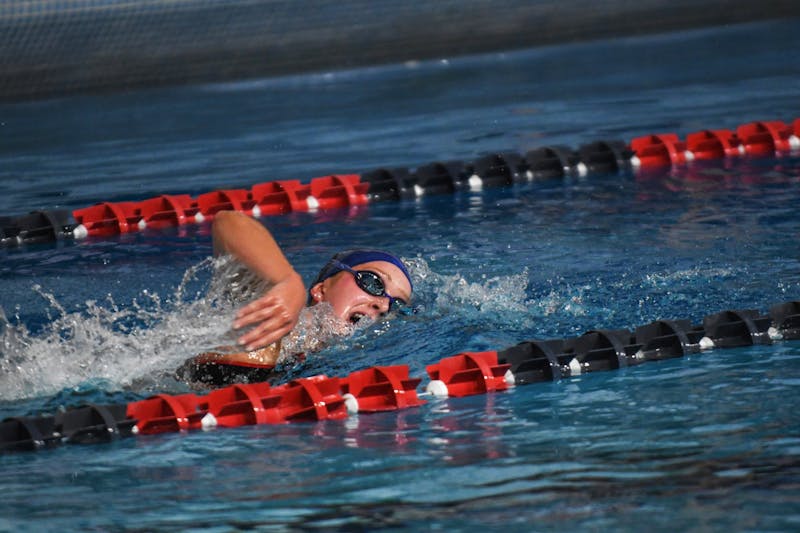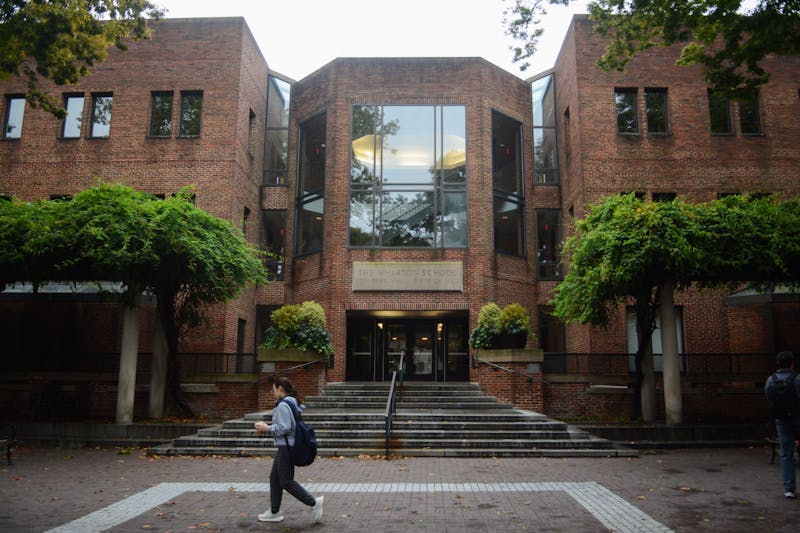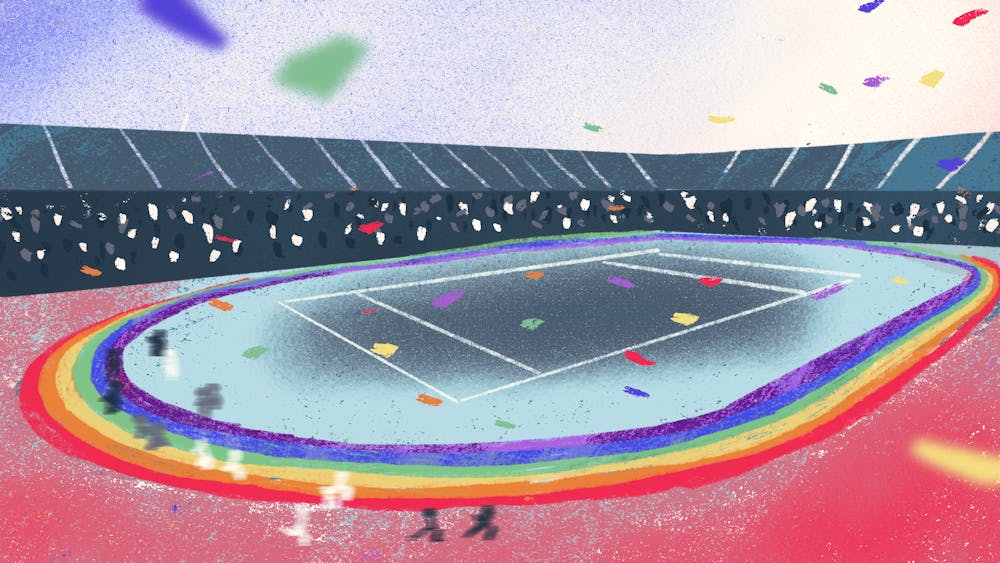
In a step to making Penn's student-athlete community a more inclusive space, national organization Athlete Ally has opened a new chapter.
Athlete Ally, in the words of chapter founder and senior butterfly swimmer Peter Lee, “champions and advocates for LGBTQ+ rights in athletic spaces, especially through college campuses.” Lee continued that the mission of the organization is to “end homophobia and transphobia in sport and to activate the athletic community to exercise their leadership to champion LGBTQI+ equality.”
The organization has active chapters in many universities across the nation, including several other Ivy League schools, such as Columbia, Harvard, and Princeton.
Lee said he was motivated to bring Athlete Ally to Penn for two main reasons: a lack of community for queer student-athletes and in response to transphobic sentiment he's observed in the media and the Penn community.
Due to the COVID-19 pandemic, Lee's first encounter with the student-athlete community on campus came in his sophomore year. He spoke about feeling like an outsider as a queer male athlete. Lee said he expected to see more support but found nothing of the sort.
“I literally didn't see anyone like me,” he said. “I think at the time, I knew three other queer student-athletes, and all three were on the swim team. I didn't know any other queer student-athletes at Penn. And there was no visibility, especially for guys.”
Also during the 2021-22 school year, former Penn swimmer Lia Thomas competed and became the first openly transgender athlete to win an NCAA Division I national championship. Thomas's success was accompanied by demonstrations and national and international media coverage.
In February 2022, 16 members of Penn's women’s swimming and diving team sent an anonymous letter to the University and Ivy League officials via Nancy Hogshead-Makar — a 1984 Olympic swimming gold medalist and lawyer and chief executive of Champion Women, a legal organization that advocates for women and girls throughout athletics. In the letter, the swimmers claimed that Thomas was taking "competitive opportunities" from the rest of the team. Furthermore, they asked the University and Ivy League to refrain from taking legal action against the NCAA if it was to adopt a policy that would effectively ban Thomas from competing.
As a result, Athlete Ally — in collaboration with Schuyler Bailar, a Harvard swim alumnus and the first publicly documented transgender person to compete in all men’s NCAA Division I sports — organized a letter in support of Thomas with signatures from over 300 current and past NCAA, Team USA, and international swimmers.
Lee said that the negative treatment of Thomas by the media, along with the transphobic sentiment he came across, only further motivated him to start an Athlete Ally chapter at Penn.
The process of bringing the organization to Penn has been one of big administrative hurdles and tests of commitment, but the cause is worthwhile for Lee. Now that it’s an established club, he said that creating a sustainability plan is key to cementing it as a long-lasting place on campus.
There have been queer student-athlete groups before, but none that have retained strong membership for more than a couple of years, according to Lee. The Penn Athlete Ally board is currently composed of mostly seniors. As such, Lee said that the club hopes to attract younger queer student-athlete leaders in the next year and build a lasting foundation for Penn's community.
Other than Lee, the current board features athletes representing various teams, including junior women's rower Kate Butcher, senior women's track and field runners Phoebe White and Bella Whittaker, and senior women's rower Amelia Demopoulos.
Creating the space is the first step, but attracting queer athletes is another challenge within itself, according to Lee. He said that in a heteronormative world, it’s important to acknowledge that starting a queer club comes with other considerations for the safety and comfort of the students it aims to support.
“I don't think a lot of people realize how hard it is to gather queer athletes. I think the first step is being willing to be outright. I was out to the community and became a spearhead,” he said. “But I think for a lot of people, being out and attaching their name to this cause is definitely a big step forward.”
Another facet the club promotes is heightened visibility and representation for this intersectional group and the people it aims to represent. With about 1,000 student-athletes on campus, Lee said creating a safe environment for intersectional groups is imperative in supporting their unique experience.
Whittaker was also involved in the founding of Black Student-Athletes at Penn, a club dedicated to creating a community for students who share the unique experiences that Black student-athletes encounter. Like Athlete Ally, there was not a club specifically dedicated to this community of athletes before her arrival in 2020.
"You’d think that in 2020, there would exist clubs like this, but it's just crazy that I've been involved with [building two clubs] from absolutely nothing and that these just didn't exist before,” Whittaker said. “I just feel like both of them [were] really much needed."
As a Black and queer student-athlete serving on the boards of both BSAP and Athlete Ally, Whittaker is able to provide insight about her experiences and represents another area of intersectionality.
"As someone who's on the board of BSAP, I think it's really important that I exist in both spaces, and I'm able to bring that different perspective into Athlete Ally and vice versa for BSAP," Whittaker said.
"I think representation and just having a community that's public is really important, especially if you're in the minority group," Lee added.
Over the next couple of months, club leaders said that Athlete Ally at Penn will continue its expansion efforts and grow its community, hoping to support queer student-athletes both in and out of season.
The Daily Pennsylvanian is an independent, student-run newspaper. Please consider making a donation to support the coverage that shapes the University. Your generosity ensures a future of strong journalism at Penn.
Donate







